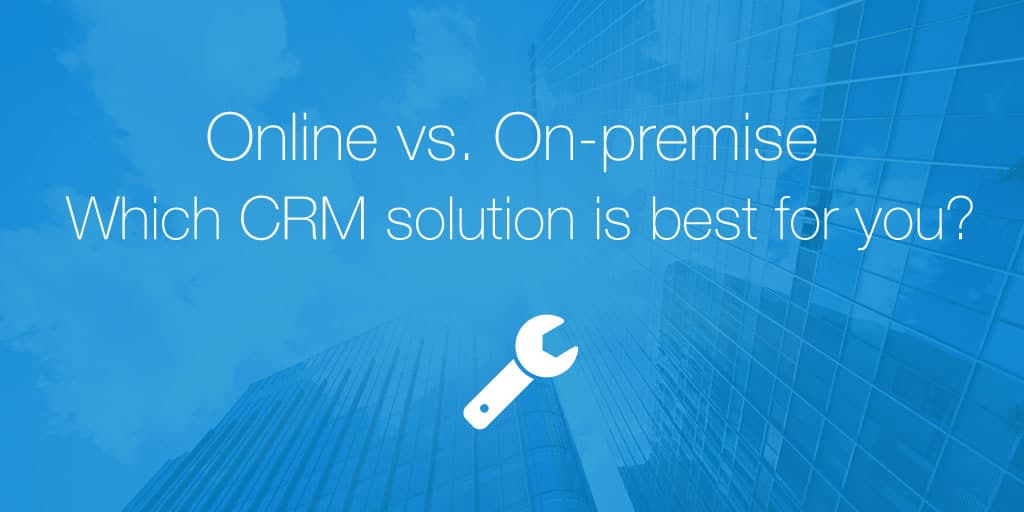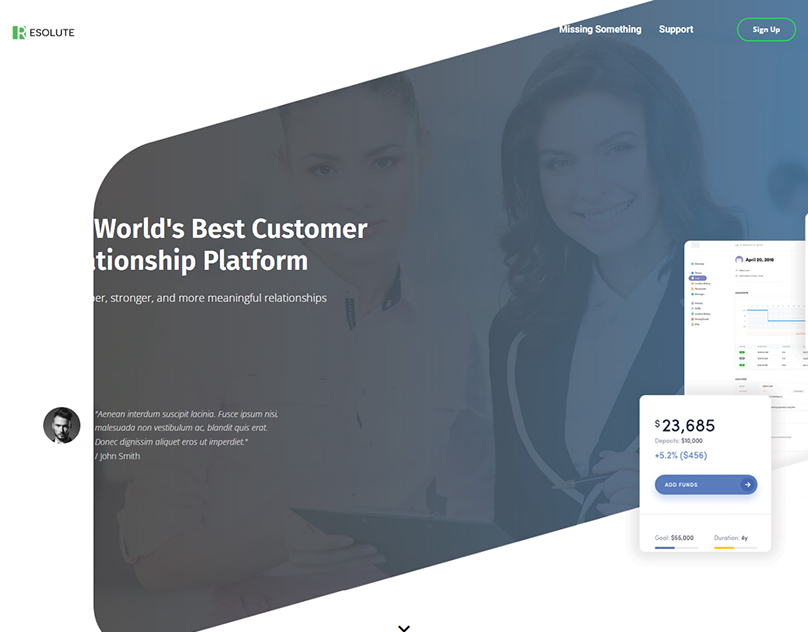crm online is revolutionizing the way businesses engage with their customers, providing tools that foster deeper relationships and enhance sales strategies. In today’s fast-paced digital landscape, utilizing a CRM system is not just an option but a necessity for organizations looking to thrive. The integration of CRM online solutions has transformed customer interactions, making them more personalized and efficient, ultimately leading to increased customer satisfaction and loyalty.
Effective CRM online platforms offer a range of features that streamline communication, track customer interactions, and automate marketing efforts. These tools leverage cloud technology to provide accessibility and scalability, ensuring that businesses can adapt to changing market dynamics while maintaining a competitive edge.
Importance of CRM Online

In the rapidly evolving landscape of modern business, Customer Relationship Management (CRM) online systems have emerged as indispensable tools for organizations striving to maintain a competitive edge. These platforms enable businesses to effectively manage interactions with current and potential customers, ultimately fostering stronger relationships and driving growth.The significance of CRM online systems extends beyond mere customer data management; they are foundational to building lasting customer relationships.
By centralizing customer information, businesses can gain valuable insights into customer behavior and preferences. This data empowers organizations to tailor their communications, anticipate customer needs, and resolve issues promptly, thereby enhancing the overall customer experience.
Impact of CRM Systems on Customer Relationships
CRM systems have a profound impact on how businesses interact with their customers. By consolidating data from various touchpoints, these systems provide a holistic view of customer interactions. One of the most critical benefits is the ability to personalize communication. When businesses leverage CRM data, they can segment their customer base and deliver targeted marketing messages that resonate with specific audiences.
This not only increases engagement but also builds trust and loyalty among customers.Moreover, CRM online solutions facilitate proactive customer service. By tracking customer inquiries and issues, organizations can respond swiftly and effectively, minimizing frustration and demonstrating commitment to customer satisfaction. This proactive approach fosters a sense of partnership, encouraging repeat business and positive word-of-mouth referrals.
Improvement of Sales and Marketing Efforts, Crm online
CRM online solutions significantly enhance sales and marketing efforts by streamlining processes and improving data-driven decision-making. The integration of these systems allows teams to track sales pipelines, monitor campaign performance, and analyze customer trends.With advanced analytics capabilities, businesses can identify which marketing strategies are yielding the best results and adjust their efforts accordingly. This leads to more efficient allocation of resources and higher return on investment (ROI).
For instance, companies that utilize CRM systems have demonstrated a marked increase in lead conversion rates, as they can follow up with potential customers at optimal times based on previous interactions.Furthermore, CRM systems support collaboration between sales and marketing teams. By sharing insights and data, both teams can align their strategies for maximum impact. This cohesion ensures that marketing campaigns are designed with the sales process in mind, ultimately driving greater revenue growth.In summary, the adoption of CRM online solutions not only enhances customer relationship management but also propels sales and marketing initiatives, leading to more effective engagement and business success.
Features of CRM Online Solutions
Customer Relationship Management (CRM) online solutions have transformed the way businesses interact with their customers. By centralizing customer information and streamlining various processes, these platforms enable companies to enhance customer satisfaction, improve sales strategies, and drive overall business growth. Understanding the key features of CRM online solutions is critical for organizations aiming to optimize their customer engagement strategies.One of the defining characteristics of effective CRM online platforms is their ability to integrate multiple functionalities that serve different aspects of customer management.
Understanding how to evaluate RMM vendors is vital for ensuring you choose the right partner for your business needs. By examining Evaluating RMM Vendors Reviews & , you can gain a clearer picture of a vendor’s reputation and customer satisfaction. This step will empower you to make informed decisions that align with both your current requirements and future aspirations.
The features available in these solutions can significantly enhance operational efficiency and provide valuable insights into customer behavior. The following are some crucial features commonly found in CRM systems:
Key Features of CRM Systems
The importance of specific features in a CRM system cannot be understated, as they directly impact user experience and functionality. Below are essential features that define effective CRM online platforms:
- Contact Management: This feature allows businesses to store and organize customer information, enabling easy access to contact details, communication history, and preferences. For example, Salesforce offers a comprehensive contact management tool that allows users to view interactions with customers over time.
- Sales Automation: CRM systems automate various sales processes, such as lead tracking, follow-ups, and forecasting sales performance. HubSpot CRM provides tools that help sales teams manage their pipelines efficiently and identify potential leads automatically.
- Reporting and Analytics: Advanced reporting capabilities are essential for evaluating business performance and customer trends. Zoho CRM features customizable dashboards and analytics tools, allowing businesses to generate insights specific to their needs.
- Integration Capabilities: Effective CRM solutions must seamlessly integrate with other tools used by a business, such as email marketing platforms and social media channels. For instance, Microsoft Dynamics 365 allows easy integration with Office 365, enhancing productivity.
- Mobile Access: The ability to access CRM functionalities on mobile devices ensures that sales teams can stay connected while on the go. Many CRM solutions, such as Pipedrive, offer mobile applications that keep users updated and informed.
Importance of Cloud Technology in CRM Systems
Cloud technology plays a pivotal role in the functionality and accessibility of CRM online solutions. By leveraging cloud-based systems, businesses can benefit from a wide range of advantages, including scalability, flexibility, and cost efficiency. The adoption of cloud technology in CRM platforms allows for real-time data updates and access from anywhere, facilitating collaboration among teams. This is particularly beneficial for remote work environments, where employees need to access customer information on the move.
Notable examples of cloud-based CRM systems include Salesforce and Zendesk, which provide robust features while ensuring data security and ease of management.
The integration of cloud technology in CRM systems enables businesses to enhance customer relationships, streamline processes, and improve overall operational efficiency.
Furthermore, cloud technology facilitates automatic updates, which ensure that all users have access to the latest features and compliance standards without the need for extensive manual installations. This reduces IT overhead and allows businesses to focus more on strategic initiatives rather than maintenance tasks.
When considering the future of your organization, selecting an RMM system that aligns with your company’s growth strategy is crucial. A well-chosen system will not only support current operations but also scale with your future needs. For an in-depth guide, refer to Selecting an RMM System for Growth , where you will find valuable insights to aid in your decision-making process.
Implementation of CRM Online

The implementation of a CRM online system is a crucial step for businesses seeking to enhance their customer relationship management practices. A well-executed implementation can lead to improved customer engagement, streamlined processes, and ultimately, increased revenue. This section Artikels the essential steps for implementing a CRM online system effectively, a checklist for businesses before selecting a CRM provider, and common challenges faced during the implementation process along with potential solutions.
Steps to Implement a CRM Online System
Successfully implementing a CRM online system involves several key steps that ensure the solution aligns well with the business’s needs and objectives. Following a structured approach can facilitate a smooth transition and adoption.
- Define Objectives: Clearly Artikel the goals and objectives of implementing the CRM system. This may include specific metrics such as improving customer retention rates or enhancing sales productivity.
- Assess Current Processes: Analyze existing business processes and customer interaction methods to identify areas that require improvement.
- Select the Right CRM Solution: Evaluate various CRM providers based on features, ease of use, scalability, and cost-effectiveness to find a solution that best fits the business’s needs.
- Develop a Project Plan: Create a comprehensive project plan that includes timelines, responsibilities, and milestones for the implementation process.
- Data Migration: Plan and execute the migration of existing customer data into the new CRM system, ensuring data accuracy and integrity.
- Training and Onboarding: Provide training sessions for employees to familiarize them with the new system, ensuring they understand its functionalities and benefits.
- Launch the System: Officially launch the CRM system, making it available for daily operations while monitoring its performance closely.
- Gather Feedback and Optimize: After implementation, collect feedback from users to identify any issues and make necessary adjustments for continuous improvement.
Checklist for Choosing a CRM Provider
Selecting the right CRM provider is critical for a successful implementation. Here is a comprehensive checklist that businesses can use to evaluate potential CRM solutions.Before finalizing a CRM provider, businesses should consider the following factors:
- Business Requirements: Ensure the CRM system aligns with your specific business needs and objectives.
- Scalability: Assess whether the provider can accommodate future growth and additional features as your business evolves.
- Integration Capabilities: Check if the CRM can seamlessly integrate with existing systems and third-party applications.
- User Experience: Evaluate the interface for user-friendliness and accessibility for all team members.
- Customer Support: Ensure that the provider offers reliable customer support and training resources.
- Cost Structure: Understand the pricing model, including any hidden costs associated with maintenance, upgrades, or additional features.
- Security Features: Verify the security measures in place to protect sensitive customer data.
- User Reviews and Reputation: Research user feedback and the provider’s reputation in the market to gauge reliability and effectiveness.
Common Challenges and Solutions During CRM Implementation
Implementing a CRM online system can pose several challenges that may impede progress. Being aware of these challenges and proactively addressing them can significantly enhance the implementation experience.
“Understanding and preparing for potential challenges is key to successful CRM implementation.”
Some common challenges include:
- User Resistance: Employees may be hesitant to adopt new technology. To combat this, involve them early in the process and provide adequate training to demonstrate the CRM’s benefits.
- Data Quality Issues: Poor data quality can lead to ineffective CRM functionality. Conduct thorough data cleansing before migration to ensure accuracy.
- Lack of Leadership Support: A lack of commitment from management can undermine implementation. Ensure leadership is engaged and supportive throughout the process.
- Integration Difficulties: Integrating the CRM with existing systems can be complex. Choose a provider with strong integration capabilities and seek technical support if needed.
- Underestimating Time and Resources: Implementation may take longer and require more resources than anticipated. Set realistic timelines and allocate sufficient resources to avoid project delays.
Future Trends in CRM Online

The landscape of Customer Relationship Management (CRM) is continually evolving, influenced by technological advancements and changing consumer behaviors. The future of CRM online is expected to be shaped by emerging trends that prioritize personalization, efficiency, and enhanced customer engagement. As organizations strive to meet the demands of a more empowered customer base, understanding these trends becomes essential for leveraging CRM solutions effectively.One significant trend is the growing integration of artificial intelligence (AI) within CRM systems.
AI technologies are enhancing CRM functionalities by automating routine tasks, providing predictive analytics, and enabling personalized customer interactions. As businesses adopt AI-driven CRMs, they can analyze customer data more deeply and derive actionable insights, ultimately leading to improved decision-making and customer satisfaction.
Emerging Trends Influencing CRM Development
The evolution of CRM online is driven by several key trends that are reshaping how businesses interact with their customers. These trends include:
- Increased Personalization: Customers now expect tailored experiences. CRM systems are evolving to provide insights that enhance personalized marketing strategies and communication, ensuring relevant content reaches the right audience.
- Omnichannel Integration: Customers engage through various channels, and CRMs are integrating these interactions to offer a seamless experience. This trend facilitates a unified view of customer interactions across platforms.
- Data Privacy and Security Enhancements: With increasing concerns over data privacy, CRM solutions are focusing on robust security measures to protect customer information while complying with regulations like GDPR.
- Mobile CRM Solutions: The rise of mobile technology necessitates CRM systems that are accessible on-the-go, allowing sales and support teams to access critical customer information anytime, anywhere.
Role of Artificial Intelligence in CRM
Artificial intelligence is transforming CRMs by introducing advanced capabilities that enhance user experiences and operational efficiency. Through AI, CRMs can offer:
- Predictive Analytics: AI algorithms analyze historical data to forecast customer behavior, enabling proactive engagement strategies that can significantly increase conversion rates.
- Chatbots and Virtual Assistants: These AI-powered tools improve customer service by providing immediate responses to inquiries, freeing up human agents for more complex issues, thereby enhancing overall efficiency.
- Sentiment Analysis: AI can assess customer sentiment from interactions and feedback, allowing businesses to tailor their approaches based on customer emotions and preferences.
- Automated Workflows: AI streamlines processes by automating repetitive tasks, ensuring that teams can focus on strategic activities that foster customer relationships.
Influence of Customer Expectations on CRM Development
As customers become more informed and demanding, their expectations significantly influence CRM development. Businesses must adapt to these evolving needs by:
- Prioritizing Customer Experience: Companies are investing in technologies that enhance customer interactions, recognizing that exceptional service is a key differentiator in a competitive market.
- Utilizing Real-Time Data: Customers expect timely responses and solutions. CRMs are integrating real-time data capabilities to facilitate prompt engagement and support.
- Flexibility and Customization: Organizations are looking for CRM systems that allow customization to meet specific industry needs, ensuring that solutions align closely with their business processes.
- Feedback-Driven Development: Businesses are increasingly leveraging customer feedback to inform CRM features and updates, ensuring that their systems evolve in line with customer desires.
“The future of CRM is not just about managing relationships; it’s about anticipating needs and delivering personalized experiences that foster loyalty.”